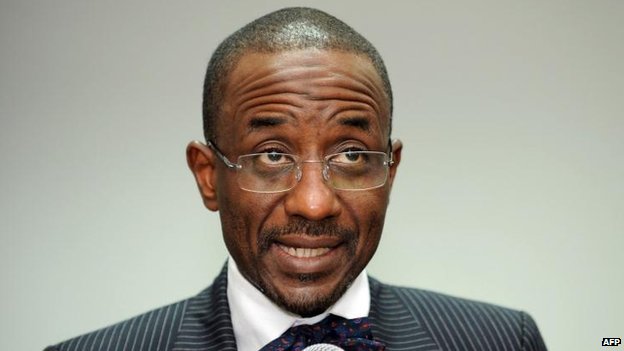The ousted central bank governor and prominent government critic, Lamido Sanusi, has been named as the new emir of Kano in Nigeria.
The new emir becomes one of the most influential spiritual leaders in the country’s largely Muslim north.
As bank governor, Mr Sanusi had levelled accusations of high-level fraud and was suspended in February.
The previous emir, al-Haji Ado Bayero, died after a long illness at the age of 83 on Friday.
Mr Sanusi made sweeping reforms during his time as the Central Bank Governor, tackling widespread fraud in the financial sector. Recently, he alleged that corruption within Nigeria’s petroleum industry meant that the oil production did not match its revenue and so billions of dollars had gone missing.
This move did not go down well with President Goodluck Jonathan, who responded by suspending him.
Now assuming the throne in Kano, Lamido Sanusi’s frosty relations with the president will be closely watched ahead of next year’s presidential elections.
‘Kingmakers’
The emir of Kano is the second-highest Islamic authority in Nigeria.
The state government in Kano made the decision after four “kingmakers” had met and submitted nominees.
Those eligible had to be male members of the Ibrahim Dabo family – whose clans include the Bayeros and Sanusis.
Correspondents say Nigeria’s traditional leaders hold few constitutional powers, but are able to exert significant influence especially in the north where they are seen as custodians of both religion and tradition.
One of Mr Sanusi’s key roles will be helping tackle the mounting insurgency by Boko Haram militants in the north.
The group has accused traditional Muslim rulers of failing to enforce its strict interpretation of the Koran.
President Goodluck Jonathan’s decision to suspend Mr Sanusi from the bank on accusations of financial recklessness and misconduct had led to concern among international investors.
Al-Haji Ado Bayero had been on the throne in the northern city since 1963.
He was the longest-serving emir in Kano’s history and sought to reduce tensions with Nigeria’s Christians.
He was also a critic of Boko Haram and survived an assassination attempt last year blamed on the Islamist group.
Source: BBC


